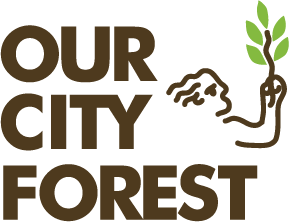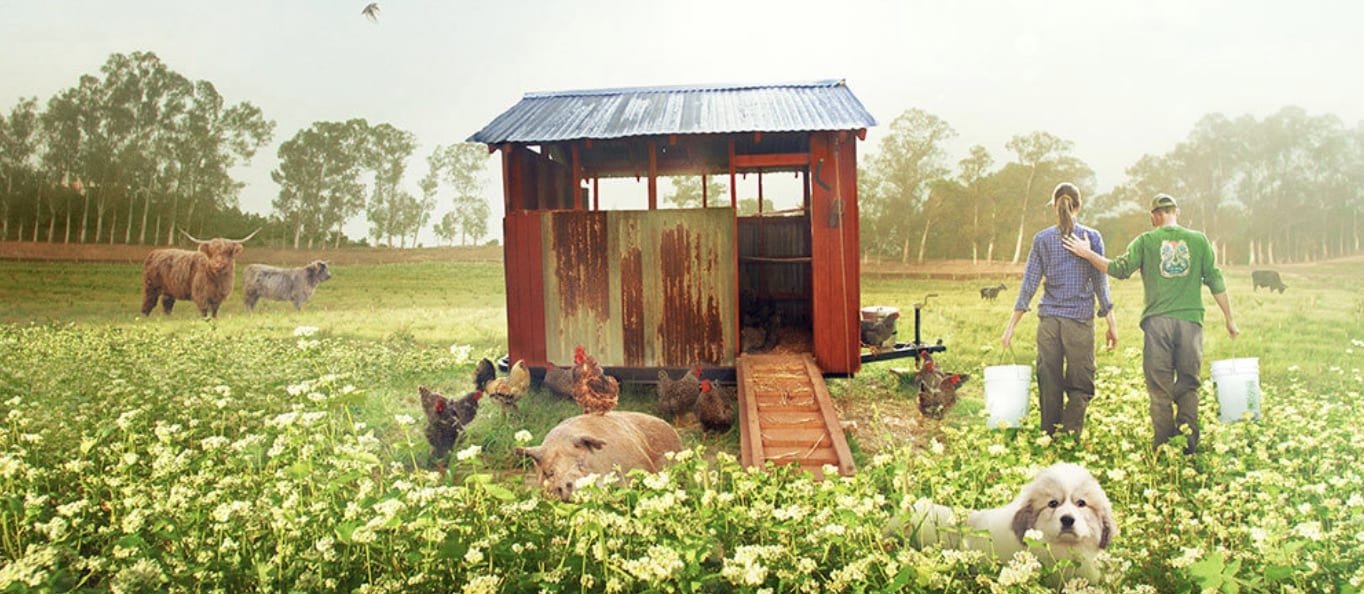A compelling story on both the simplicity and complexity of sustainable farming built around biodiversity & how it relates to Our City Forest
The documentary The Biggest Little Farm chronicles the journey of John and Molly Chester as they establish a diverse, sustainable farm they named “Apricot Lane Farms,” a 200-acre desolate stretch of land in Southern California. The film follows their struggles, victories, and the interdependence of all things natural as they confront the harsh (and even brutal) realities of farming and work to establish a balanced ecosystem. Through their experiences, they learn valuable lessons about resilience, biodiversity, and the importance of working with nature rather than against it.
I will not go into much more detail about the documentary other than saying I cannot recommend it more highly. The Biggest Little Farm effectively reminds people of the value of environmental stewardship and the opportunity for advancement when people adopt sustainable lifestyles. Overall, it’s a must-watch for anybody with an interest in sustainable agriculture, environmental preservation, or simply seeking an uplifting story of hope and determination. It’s a testament to the transformative power of nature and the incredible possibilities that arise when we choose to nurture and respect the world around us. As of right now, you can access this film on Prime Video, Hulu, and HBO Max, as well as rent on Apple TV.
A short while ago, while I was thinking back on the documentary, I made the connection between its message and Our City Forest: both emphasize how important environmental stewardship and sustainable agriculture are. John and Molly set out to turn an empty plot of land into a prosperous, sustainable farm in The Biggest Little Farm. Their story highlights the interconnectedness of nature and the benefits of working with natural ecosystems to create a harmonious environment that supports biodiversity and agricultural productivity. Comparably, Our City Forest seeks to improve quality of life and the urban environment by advancing urban forestry and environmental stewardship. They hope to reduce the consequences of climate change, increase the amount of green space in metropolitan areas, and build healthier, greener neighborhoods through their lawn conversion program, which turns green grass lawns into drought-tolerant ones that serve as a natural habitat or a spot for local wildlife to relax.
In The Biggest Little Farm, John Chester said, “Nature doesn’t ask us to leave. It invites us to participate,” which I also believe resonates deeply with the work of OCF. It emphasizes the idea that humans are not separate from nature but rather integral participants in the ecosystem. Similarly, Our City Forest promotes the idea of active participation in plant care and making our community a more environmentally friendly place. By actively involving individuals in activities such as tree-planting events and volunteer opportunities, they foster a sense of connection and ownership over the urban forest, encouraging people to see themselves as active contributors to the health and vitality of their surroundings.
The documentary and OCF’s work both stress how crucial it is to have a symbiotic relationship with nature, understand how ecosystems are interconnected, and take proactive measures to promote environmental resilience and sustainability in our local communities. Both encourage people to take action in order to protect and improve the natural environment for coming generations.
If interested, here is a link to the Apricot Lane Farms website! :)


